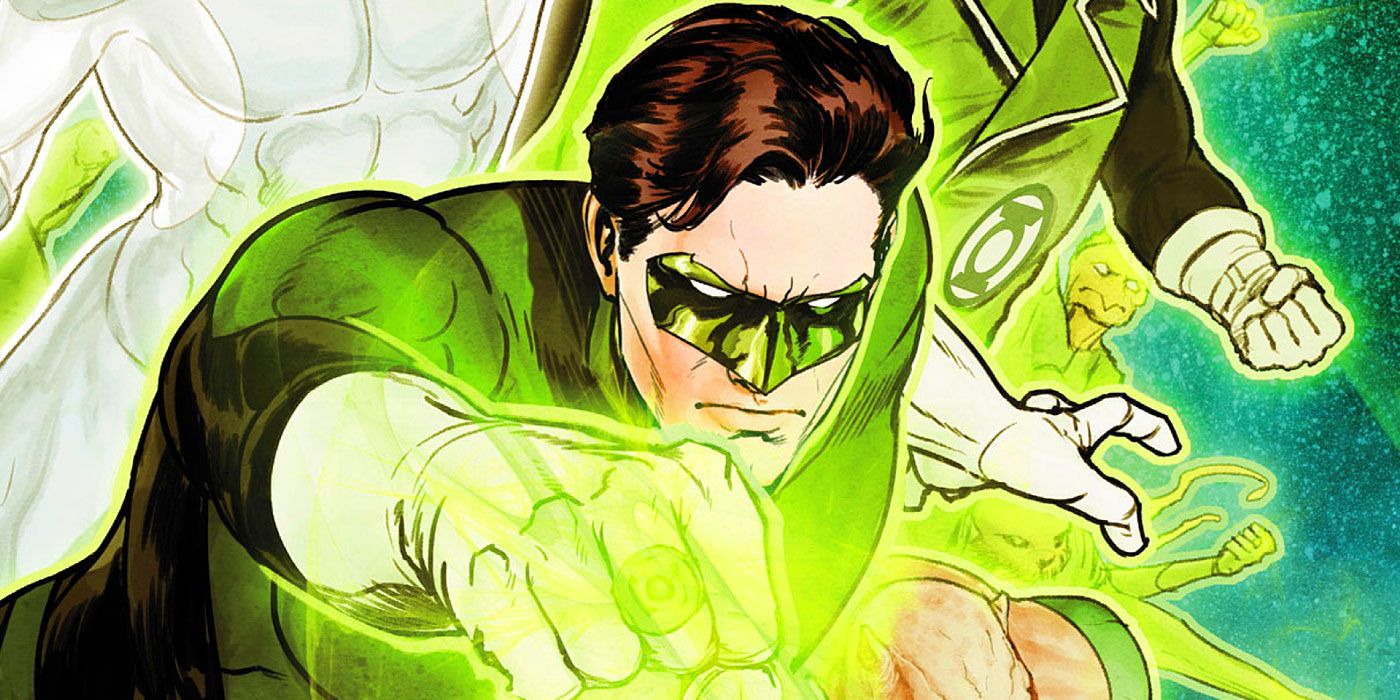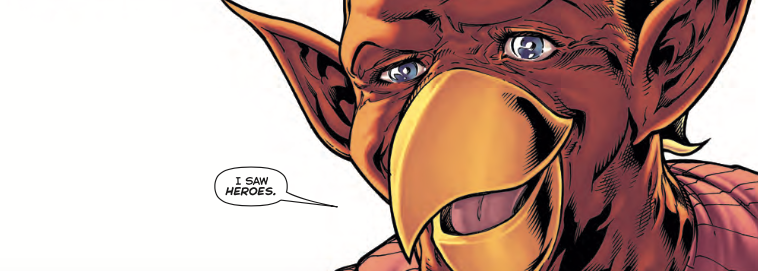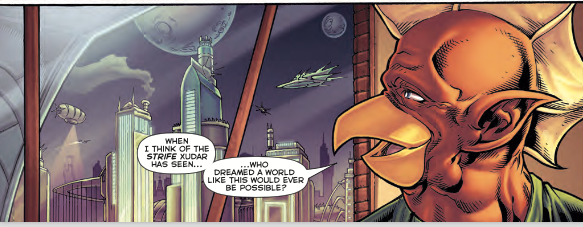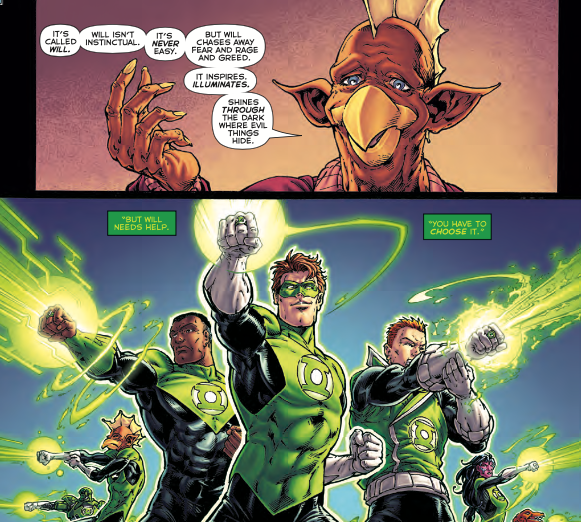SPOILER ALERT: This article contains spoilers for "Hal Jordan and the Green Lantern Corps" #13, in stores now.
"Hal Jordan and the Green Lantern Corps" #13 by Robert Venditti and V. Ken Marion serves as an uplifting epilogue to the "Bottled Light" arc, retelling the story of Starro's siege of Xudar from the perspective of civilians who survived. Set sixty years in the future, "Heroes" is a simple, one-issue tale celebrating the triumph of hope and the power to overcome great fear, as, rather than succumbing to hate, multiple Xudarians instead follow in the footsteps of Tomar-Re and Tomar-Tu to become Green Lanterns themselves. Because of a coincidence of timing, though, readers may feel an unintended resonance:
The issue reads like a direct response to the inauguration of Donald Trump as the 45th President of the United States.
Let's get this out of the way: this was not the creators' intent. Publishing schedules would have made it very difficult -- though not impossible -- to drop a one-off issue in January responding to the election results. Additionally, a quick look at DC's January solicitations (published in October) describes exactly the story we see here. And Venditti confirmed on Twitter that the story was pitched and approved well in advance of the election.
RELATED: Supergirl Star Sends a Message to Trump at March on Washington
But arriving the week after the Presidential inauguration and Women's March, and framing resistance in very similar language to that used by protesters, "Hal Jordan" #13 takes on the weight of real-world events. Left-leaning readers may see it as a message of solidarity, while some fans on the right might bemoan a "liberal agenda." Even though it's not intended. Even though it could not have been planned.
Art gets away from the artists.
"The Tale of My First Adventure"
Somal, a Xudarian grandmother, tells her grandkids a bedtime story that begins with Starro's invasion and winds through the history of the planet and of the Green Lantern Corps since that day, before revealing to the reader that all of this led her to become a GL herself, a mantle she still bears in her golden years. Somal's parents were killed in the Starro attack, and she herself was possessed by the telepathic starfish -- a visceral terror that continues to haunt her. Upon being freed of its influence, Somal recalls, "I was so afraid. I dared not move. I didn't want to look up for fear of seeing that horrible red eye again. But I did look up. It was the most difficult thing I have ever done."
"I saw heroes."
A Brief History of Xudar, 2017-present
Somal's fable hints at future adventures of the Green Lantern Corps and reveals that at some point John Stewart "would call me friend," while fellow Xudarian Romat-Ru of the Sinestro Corps will go on to commit further atrocities. It would also seem that an invasion of ring-wielders from the Crime Syndicate universe is imminent. "Evil occurs," she says, "and it's evil things that do it. They want you to be afraid there are too many of them. That there is more evil than good." But the father and son GLs Tomar-Re and Tomar-Tu have achieved great deeds such that they're taught in the children's history classes. And Xudar, it seems, is enjoying an era of peace, progress, and prosperity. Because, Somal tells us, her people chose the power of will over fear.
"Will isn't instinctual. It's never easy. But will chases away fear and rage and greed. It inspires. Illuminates. Shines through the dark where evil things hide."
Overcoming Great Fear
At its core, the Green Lantern concept has always been about the human ability to face our greatest fears. It's inspirational. Aspirational. There is nothing inherently political in this, and plenty of readers will take in "Hal Jordan" #13 for what it is -- a story of hope in the face of adversity. It's a message for everyone.
In a climate, though, where the political conversation is rife with the language on fear and resistance, any story of resistance or fear can be enlisted to the cause. Disney CEO Bob Iger said before the opening of "Rogue One" that the "Star Wars" spinoff was not political; of course it was. Is it wrong to read meaning into a creative work that the artist had not intended? Is it damaging to rally around a work of art that supports one's own viewpoint, or raise the alarm bell against work one views as harmful, whether that perspective was the point?
No, not really. In some cases, this is how change happens.
But it's also possible to take the message on board without getting mired in the perceived slight. Can we not agree that the triumph of hope over fear is good thing, whether that manifests as "Make America Great Again" or "Love Trumps Hate?"
Because that's what Green Lantern is about. There's no denying that there are deep and meaningful divisions in America right now, and there are no easy answers to reconciling schisms that go beyond traditional conflicts between the political left and right -- simple calls to unity diminish the arguments of all sides. But remembering heroes, working together, choosing to act when it's easier to be silent? That's not a bad place to start.




